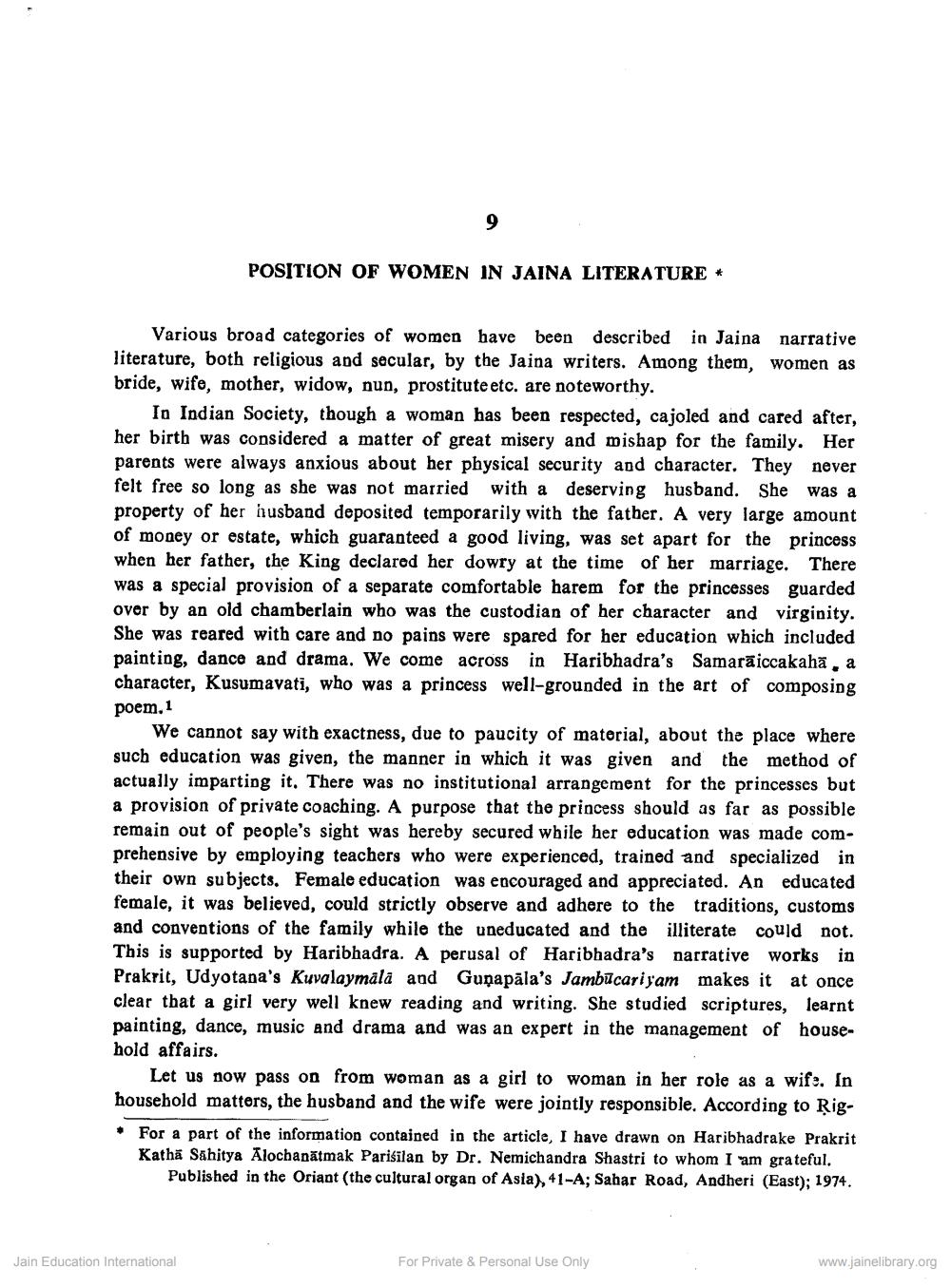________________
POSITION OF WOMEN IN JAINA LITERATURE *
Various broad categories of women have been described in Jaina narrative literature, both religious and secular, by the Jaina writers. Among them, women as bride, wife, mother, widow, nun, prostitute etc. are noteworthy.
In Indian Society, though a woman has been respected, cajoled and cared after, her birth was considered a matter of great misery and mishap for the family. Her parents were always anxious about her physical security and character. They never felt free so long as she was not married with a deserving husband. She was a property of her husband deposited temporarily with the father. A very large amount of money or estate, which guaranteed a good living, was set apart for the princess when her father, the King declared her dowry at the time of her marriage. There was a special provision of a separate comfortable harem for the princesses guarded over by an old chamberlain who was the custodian of her character and virginity. She was reared with care and no pains were spared for her education which included painting, dance and drama. We come across in Haribhadra's Samarā iccakaha, a character, Kusumavati, who was a princess well-grounded in the art of composing poem. 1
We cannot say with exactness, due to paucity of material, about the place where such education was given, the manner in which it was given and the method of actually imparting it. There was no institutional arrangement for the princesses but a provision of private coaching. A purpose that the princess should as far as possible remain out of people's sight was hereby secured while her education was made comprehensive by employing teachers who were experienced, trained and specialized in their own subjects. Female education was encouraged and appreciated. An educated female, it was believed, could strictly observe and adhere to the traditions, customs and conventions of the family while the uneducated and the illiterate could not. This is supported by Haribhadra. A perusal of Haribhadra's narrative works in Prakrit, Udyotana's Kuvalaymala and Gunapala's Jambucariyam makes it at once clear that a girl very well knew reading and writing. She studied scriptures, learnt painting, dance, music and drama and was an expert in the management of household affairs.
Let us now pass on from woman as a girl to woman in her role as a wife. In household matters, the husband and the wife were jointly responsible. According to Rig
For a part of the information contained in the article, I have drawn on Haribhadrake Prakrit Katha Sahitya Alocbanatmak Parisilan by Dr. Nemichandra Shastri to whom I am grateful,
Published in the Oriant (the cultural organ of Asia), 41-A; Sahar Road, Andheri (East); 1974.
Jain Education International
For Private & Personal Use Only
www.jainelibrary.org




